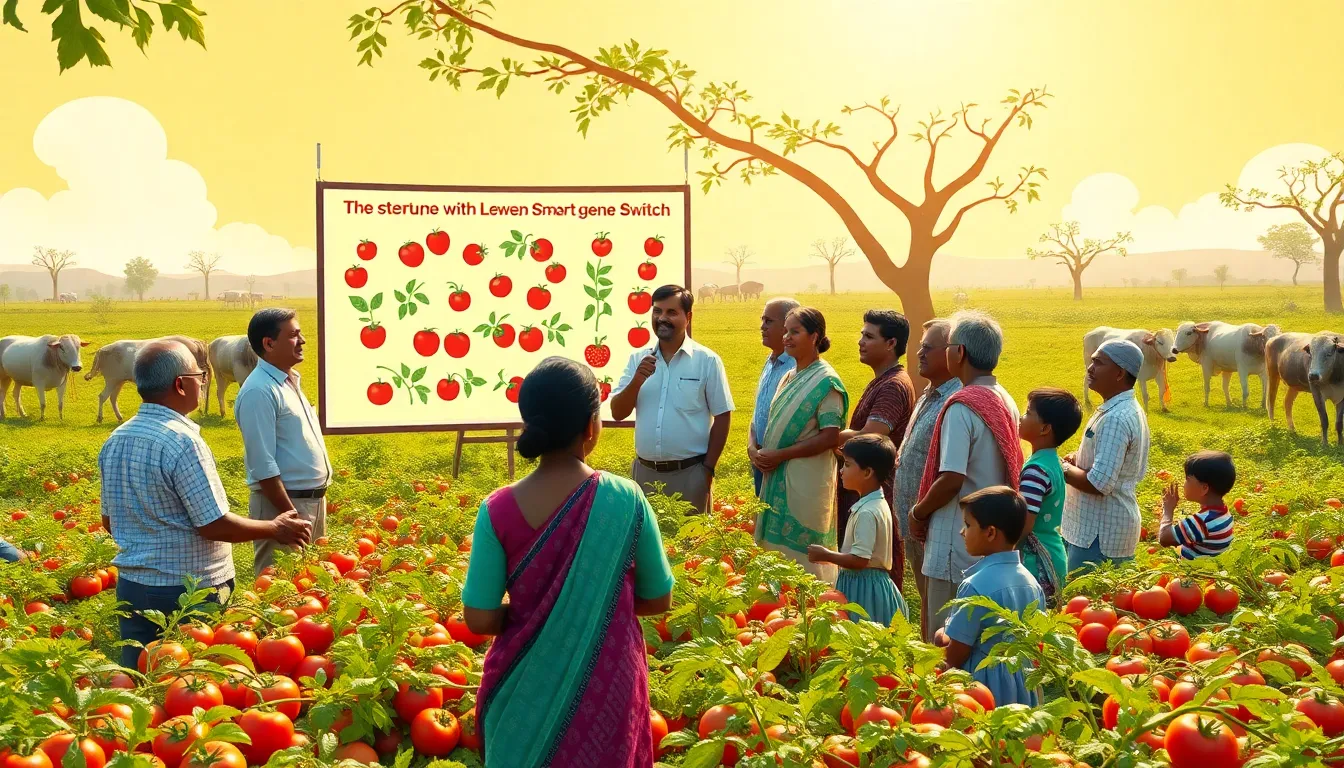In a major breakthrough, scientists from Bose Institute have developed a smart gene switch that helps crops fight heat and disease only when necessary. This innovation could change farming practices worldwide. The tool is based on CRISPR technology, which is known for editing genes. However, this new version, called dCas9, does not cut DNA. Instead, it acts like a switch to turn genes on or off based on the plant’s needs.
Plants often face stress from extreme weather and diseases. When stressed, their growth and productivity can decline. To tackle this issue, the team led by Prof. Pallob Kundu used a clever method. They took a part of a tomato protein known as NACMTF3, which acts like a tether that holds the dCas9 switch outside the plant’s control room, called the nucleus.
Under normal conditions, the switch remains inactive. But when the plant experiences stress, such as high temperatures or infections, the tether releases the switch. This allows it to enter the nucleus and activate important genes to help the plant defend itself.
The researchers tested this system on tomatoes, potatoes, and tobacco. They found it especially effective in tomatoes dealing with the bacterial pathogen Pseudomonas syringae, which can be deadly during heatwaves. Normally, heat weakens a plant’s immune system, making infections more likely. However, by activating two key defense genes, CBP60g and SARD1, the scientists helped the tomatoes fight back against the disease.
Moreover, during high temperatures, the tool also turned on two “heat helper” genes, NAC2 and HSFA6b. These genes helped the tomato plants retain water and stay green, even in the heat. This means the plants can remain healthy and productive, despite challenging conditions.
With climate change leading to more extreme weather, farmers are struggling to maintain crop yields. This smart gene switch offers a solution by allowing plants to use energy efficiently. The switch is only activated when danger is near, boosting the plant’s natural defenses at the right time.
The research was published in the International Journal of Biological Macromolecules. The findings suggest that this technology could benefit not only tomatoes and potatoes but also other crops like eggplants and chillies. This development paves the way for smarter farming practices in the future.
The use of CRISPR technology in agriculture has been a hot topic. Unlike traditional genetic engineering, which permanently alters a plant’s DNA, this smart system allows for reversible changes. It’s like a fire alarm that only rings when there’s danger.
As scientists continue to refine this technology, it could empower farmers with crops that are self-regulating and adaptive. This is crucial as the agriculture sector faces increasing pressures from climate change and disease outbreaks.
Prof. Pallob Kundu expressed optimism about this advancement, stating, “This switch doesn’t just help the plant survive—it helps it thrive by choosing when to act.” This innovation could lead to more sustainable and efficient farming practices worldwide, making agriculture smarter and more resilient to climate challenges.



